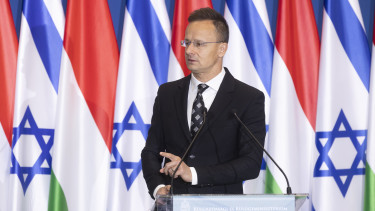Festivals finished for the summer in Hungary

Major setback for the sector
"There is no historical experience for the current situation," said Tamás Kádár, head organiser of the Sziget Festival, adding that "because of that we also lack the key for the solution."
"At the moment, we only feel an abysmal sadness that the loads of work, love and enthusiasm which have been put into these festivals and our guests for decades have come to nothing this year."
Kádár said that first and foremost an optimal solution needs to be found for those that had bougth their tickets and passes in advance, may it be deferred usage next year or refunds.
International examples offer various solutions and some countries this process is supported by specific regulations.
What is certain is that this unprecedented situation causes extremly serious financial damages on the festival market and to the country as well, putting at risk a host of jobs and companies
, said Kádár. He added that although consultations have started with the government on potential assistance, a rescue package for the industry, and professional organisations have long been discussing various emergency scenarios, festival organisers have not yet achieved concrete results with policy makers.
For the time being, Kádár is asking for patience. "We are looking for the solution, and it would certainly help a lot if guests that had already bought their tickets in advance considered them as an investment for next year's festival."
1% of GDP to be lost?
HÉTFA Research Institute has just published an analysis, including an outlook, on the festival market. It estimates that every forint not spent at a festival strips the economy from 7 forints due to spillover effect.
If festivals are not held until the autumn, lost income could add up HUF 442 billion or almost 1% of GDP in 2019, it added.
HÉTFA and the Music Hungary Alliance estimated that 70% of all gigs between early March and end-September will be cancelled, which translates into a direct loss of about HUF 28 bn for the sector.
Income from food and beverage consumption at the events is about that large. In 2019, young people had about HUF 10,000 on average to spend on a given festival per day. Most of their spending goes usually for food and drinks. Not to mention that not only young people attend these festivals, some specifically target older generations, and festival tourism is also considerable. According to a previous survey by the National Economy Ministry, 10% to 12% of tourists come to Hungary for festivals. And their daily spending limit is much higher than that of locals. In 2015, their daily budget reached up to HUF 40,000 to HUF 100,000.
Festival organising and the related catering business are estimated to lose HUF 55-60 billion this year.
Festivals are a huge source of income all over the country. In 2018, there were 1,151 music festivals in Hungary, 11% (124) of them in Budapest and 10% in Pest county. Most counties host at least 40 festivals a year, which translates into a lot of events across the country.
Cover photo by Luigi Rizzo/Pacific Press/LightRocket via Getty Images











